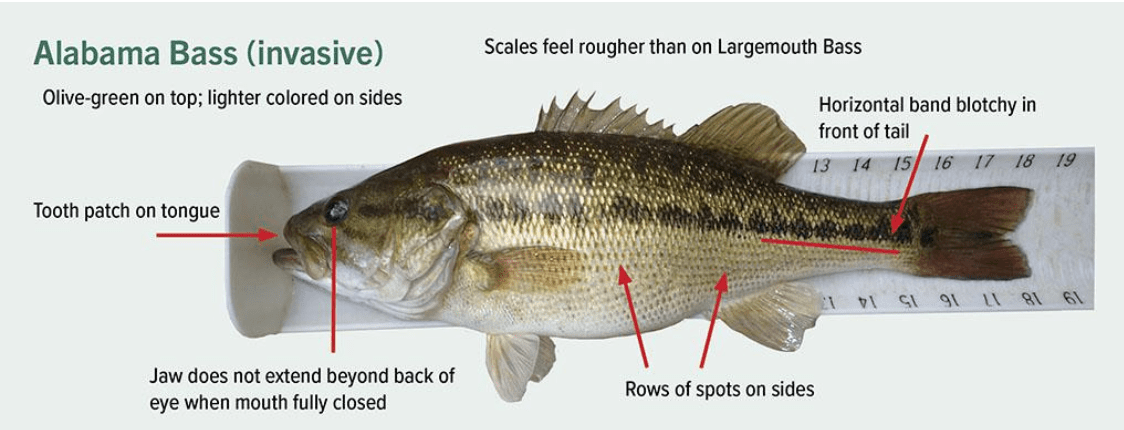
An invasive species of bass to North Carolina is now being found in coastal areas of the state, prompting wildlife officials to ask anglers to help stop the spread to protect native species of bass.
North Carolina Wildlife Resources Commission biologists say Alabama bass populations infiltrate more rivers and lakes in the state than ever before, competing with native fish and aquatic organisms.
Supporter Spotlight
The species, which anglers often mistaken for spotted bass or largemouth bass, were initially discovered in western North Carolina waters in the 1980s, first in Lake Chatuge, a manmade reservoir in Clay County, and then in Lake Norman.
Over the last 20 years, state wildlife biologists have documented through routine fisheries surveys the rapid spread of Alabama bass to other reservoirs and rivers, including coastal area waters such as the Roanoke and Tar rivers.
Anglers are believed to have introduced the species to state waters.
“They’re being stocked and moved to new locations by anglers who need to understand the impact it’s having to our native black bass family of largemouth, smallmouth and spotted bass,” state wildlife district biologist Kin Hodges said in a release. “Populations of largemouth bass are being dramatically reduced, while North Carolina could potentially lose smallmouth and spotted bass.”
Wildlife officials say Alabama bass can be difficult to distinguish from native bass. The Wildlife Resources Commission has posted illustrations to help anglers identify the different bass species and installed signs to help with identification and education about Alabama bass at popular fishing and boating access areas.
Supporter Spotlight
Anglers who catch Alabama bass should not release them back into a waterbody.
Alabama bass or, on average, smaller than largemouth bass and they interbreed with smallmouth and spotted bass, which, with time, could eliminate small and spotted bass from the fish community, according to WRC biologists.
“When we heard Alabama bass were being caught in reservoirs upstream of our coastal rivers in 2020, we anticipated we would start seeing them downstream,” WRC Coastal Region Fisheries Research Coordinator Kevin Dockendorf said in a release. “In October 2024, our fisheries biologists collected Alabama bass in the Roanoke and Tar rivers with boat electrofishing. This expansion of Alabama bass is of concern given the similarities of North Carolina’s coastal rivers to the habitats found in Alabama bass’s natural range.”
Moving or stocking fish in public waters without a state stocking permit is illegal in North Carolina. Releases of fish from live wells into waters different from where the fish were caught are also illegal.
“They are being illegally spread across the state by misguided anglers who think that they will make the fishing better,” Hodges said. “The only tools we have to minimize the damage being caused by Alabama bass are to encourage anglers not to spread them to new waters, and to harvest as many as possible in waters where they have already been introduced to minimize their damage.”
Anglers who catch an Alabama bass in a waterbody not previously documented are asked to take photographs and report it through the N.C. Wildlife Aquatic Nuisance Species Reporting Tool or by emailing PublicInquiry-FishWildlife@ncwildlife.gov.
Illegal Alabama bass stocking may be reported by calling 800-662-7137.







